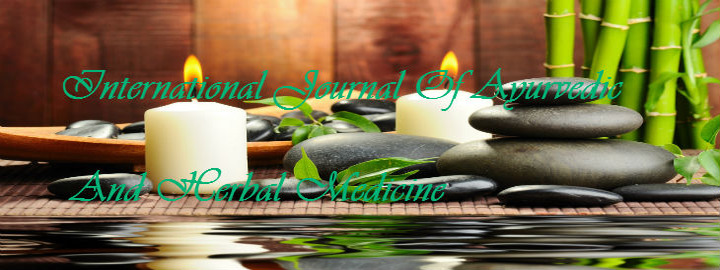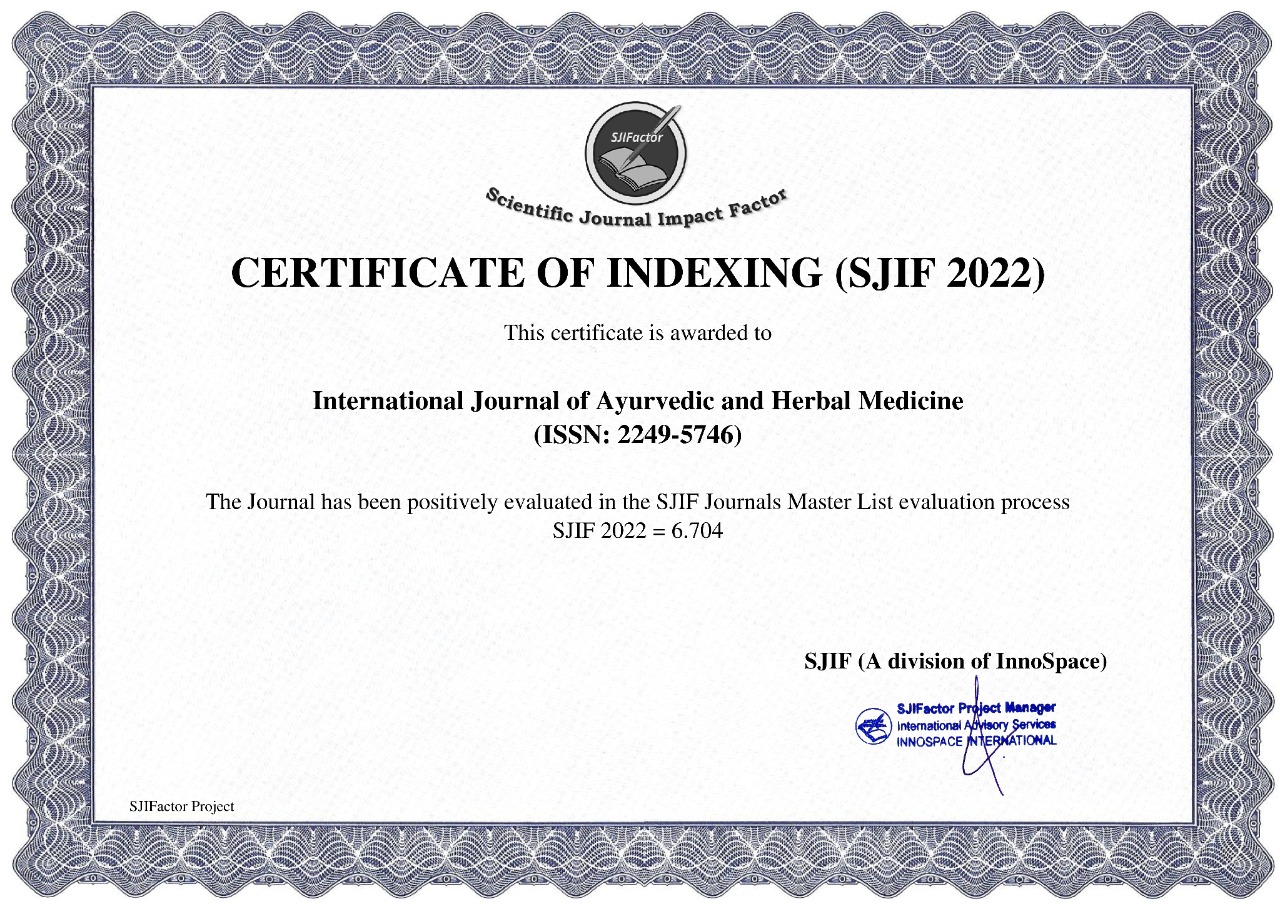


1Dr. Rajveer Gupta ,2Dr. Omhprakash Shukla ,3Dr. Vivek Shrivastava , 4Dr. Pravanjan Acharya
1M.D. Scholar, Department of Samhita Siddhant
2M.D. Assistant professor, Department of Samhita Siddhant
3M.D. Associate professor, Department of Samhita Siddhant
4M.D, PhD, HOD & Professor, Department of Samhita Siddhant , Govt.Ayurved College. Rewa (M.P)
ABSTRACT
Ayurveda is such a holistic science that sustain the health of millions of human beings over this terra by improving the quality of standard of living and by providing curative measures for varieties of disorders. If a man follows rules described in Dincharya and Ritucharya, his longevity may be enhanced. Brahma Muhurta is a specific time that recharges biological clock in human being and maintain its rhythm and pattern day long. A biological clock or a Circadian Rhythm is any biological process that displays an endogenous, entrainable oscillation of about 24 Hours, some exogenous or external factor such as light, temperature etc. affects the circardian rythem in human called zeigeber. The deranged lifestyle also affect this clock, as a result several undesirable traits and diseases are evolved. This pre-dawn time is very useful for meditation and yogik kriyas, his smriti (memory) becomes sharp and he moves toward the ultimate goal of yoga i.e. Moksha. As per ayurvedic ideology, the Brahma Muhurta pacify the vata that certainly control the mana. Hence Brahma Muhurta is necessary for spiritual evolution. The person who wakes up early in the morning his ageing process become delayed. It is also a perfect time to align us with cosmic power as per Lok purush samya siddhanta.
Key words: Dincharya, Ritucharya, Brahma Muhurta, Biological Clock, Zeitgebers, Meditation, Yoga, Moksha, Spiritual Evolution, Ageing, Lok Purusha Samaya Siddhanta.
REFERENCES
1. Dr. Ram Karan Sharma and Vaidya Bhagwan Das, Charak samhita Vol. I (Ch. Su. 8/18) page 17, Chaukhambha Sanskrit series Varanasi 2014.
2. Dr. Ram Karan Sharma and Vaidya Bhagwan Das, Charak Samhita Vol I (Ch. Su. 1/53) page 39, Choukhambha Sanskrit series Varanasi 2014
3. Dr. Banwari Lal Gour, Ashtanga Hridayam Samvartika Commentory (As. H.54 2/2) page no. 19, chaukhambha orientaliya Varanasi 2013
4. Dr. claudiaweltch.com
5. Bhojraj Dwivedi, Religious basis of hindu beliefs page 25, Diamond Poket Book Jodhpur 2006
6. Vandeguruparamparaam. blogspot.com
7. Nittai.ved. hyf
8. (I,II,III) Nitaiveda.com
9. En.wikipedia.org
10. Dr. Ramkaran Sharma and Vaidya Bhagwan Das, Charak Samhita Vol II (ch. Vi 8/9) pg 220, chaukhambha Sanskrit series Varanasi 2014
11. Vedguru paramparram.blogspot.com
12. Vaidya Harischandra singh Kushwaha, Charak Samhita, Ayurved Deepika’s Ayushi commentary (ch.sha. 1/137), page no. 743 chaukhamba Orientalia Varanasi 2011
13. Dr. Ramkaran Sharma and Vaidya bhagwan Das, Charak Samhita vol I page 39, Chaukhamba Orientalia Varanasi 2014
14. Bhojraj Dwivedi, Religious basis of Hindu beliefs page 25, Diamond Pocket book Jodhpur 2006
15. Www. 16rounds.com
index























